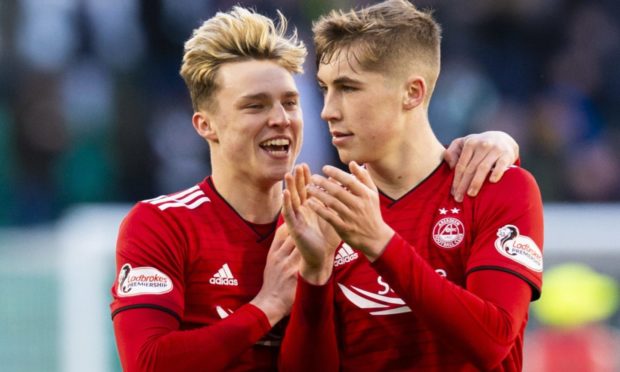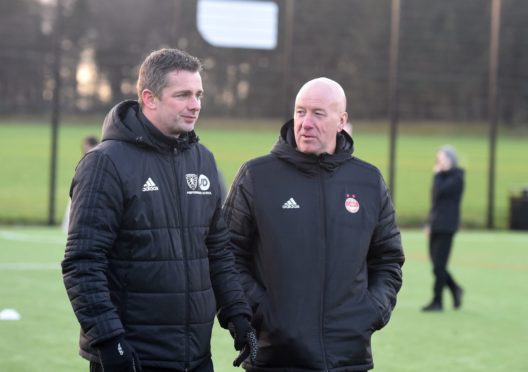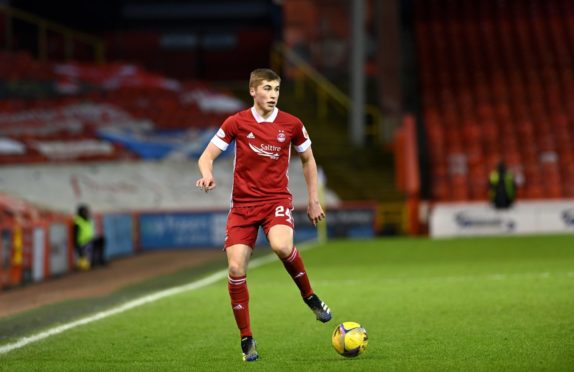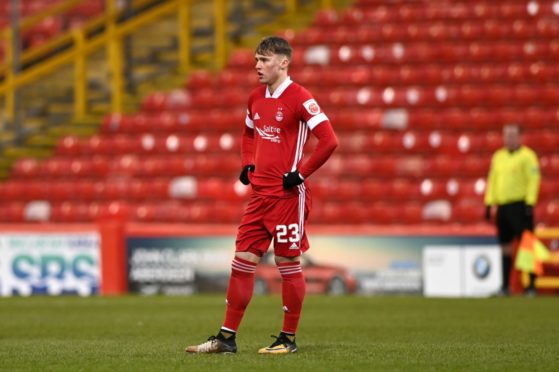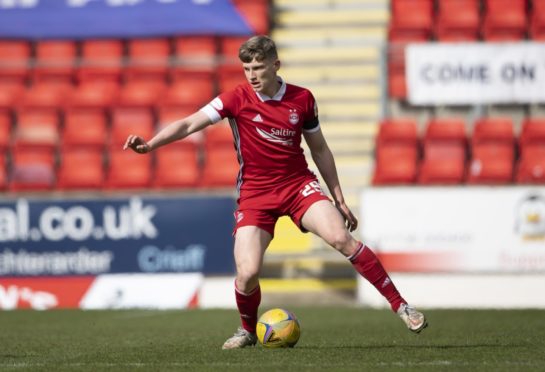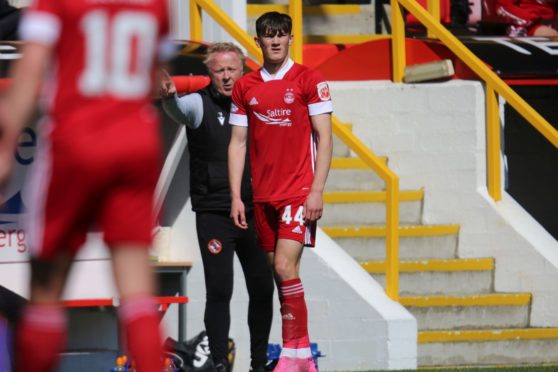Aberdeen fans have been promised a bright future, with young local players at the heart of their first-team squad.
One of the criticisms of Derek McInnes’ tenure was that he did not give enough opportunities to the club’s youth products and chairman Dave Cormack cited it as one of the main factors in Stephen Glass getting the manager’s job.
Interim manager Paul Sheerin, who took charge of the Dons after McInnes’ departure, brought several of the young players into the first-team fold. He was aware of their talents with his time as youth and reserve coach.
The club’s head of youth development Neil Simpson was also part of the coaching setup drafted in to aid Sheerin, prior to Glass’ appointment.
Aberdeen have had access to the Scottish FA Performance School at Hazlehead Academy, which was one of seven specialist football schools set up by the SFA in 2012.
Stuart Glennie has been head coach at the Hazlehead performance school since 2013 and, 18 months ago, gave an insight into its workings and how they go about producing young players for the Dons.
He has coached some of the young prospects who have graduated to Aberdeen’s first-team recently and provides some insight into their development.
First-team opportunities
Dean Campbell was the first Performance School graduate to make his senior debut in May 2017.
In many ways, he is the shining example for Aberdeen graduates and has been back to the school to speak to prospective pupils.
But one thing Campbell has benefitted from is opportunities to play, a key tenet for any young player’s development.
“To be around the first-team is fantastic, but the only way players develop is by playing games,” said Glennie. “They go from the demands of being in the under-16s, to the under-18s, where there’s some full-time guys in playing with them, to then training with the first-team, which has been accentuated recently with a number of younger boys training in the first-team bubble.
“But ultimately they need to play. It’s about managers believing in them and letting them play; they’re not going to give you 10 or 12 outstanding games, but it’s about believing in them.
“To determine if a young player is good enough, they need to be given a run of games. They may make a mistake one week, but you say ‘you know what, we’re sticking with you’.
“I think the clubs are realising that, if they’re not playing, they need to get them out somewhere they are going to, if there’s going to be a benefit in the long-term.”
Dealing with contracts and planning for the future
Many young players, understandably, get caught up in the idea of simply playing football for their boyhood club. It is a dream dangled on the end of a stick for anyone coming through an academy system.
But there is also the part when football becomes a business. Players having to deal with contracts and deciding what is best for their future can sometimes come as a surprise.
Ethan Ross, a Hazlehead graduate, finds himself out of contract this summer after a handful of senior appearances for the Dons.
“They obviously get their first contract at a club and they’re delighted with that,” said Glennie. “But they’re also well-aware they want to be at clubs where they can develop and move on.
“They also need to be given support, whether that’s through the club or myself. I still speak to players who are at clubs, part-time clubs, women’s clubs – advice on what they should do going forward.
“We’re not giving advice that they should move away from clubs. It’s just advice on what’s going to best what’s for them. Ultimately, they want to play and they need to be somewhere they’re going to do that.”
Opportunity could come at any time
Jack MacKenzie came through the Performance School at Hazlehead and has been handed his chance by first Sheerin and now Glass.
He has recently signed a new two-year deal at Pittodrie after making his breakthrough into the first-team.
“I first came across Jack when I worked part-time at Aberdeen – he was at under-12s at that time,” said Glennie. “Jack always had a great left foot and that determination; he’s been patient and probably would have liked to play more games than he has over the last couple of years.
“It shows if someone is willing to put in the effort they’ll get opportunities. It could have been easy for Jack to think he’s maybe not going to get an opportunity, but he’s grasped it.”
MacKenzie started the season on loan at League One side Forfar Athletic, before coming back into the first-team picture.
“It’s difficult for a young player going out on loan, because everybody goes to different clubs at different levels,” said Glennie. “But, ultimately, they’re competing and hoping to be playing at the weekend.
“It’s men’s football, which is different from being in the under-18s at Aberdeen. You could be playing with part-time players with are earning a living by getting victories; there’s pressure put on these young boys they probably haven’t seen before.”
Having belief in their ability
Calvin Ramsay is the youngest of those to break through – he doesn’t turn 18 until July – and was handed his first start by Sheerin in the Scottish Cup against Dumbarton.
With Aberdeen in need of a right-back, Ramsay was given his chance and looks set to be around the first-team picture for the foreseeable future.
Given he is not much older than some of Glennie’s current students, the incentive is there for what they could achieve in the near future.
“Calvin believes in his own ability and has no fear,” added Glennie. “I can imagine him going out for games and having no fear, just playing.
“It can be easy for young players to be thrown in for a game here or there, but the route Aberdeen are going down, they’re wanting to compete at the top end of the table, but also give the best young players at their academy a chance.
“Nothing really fazes Calvin and he’s probably one of those young boys in the bracket of needing to kick on and play games now.”
